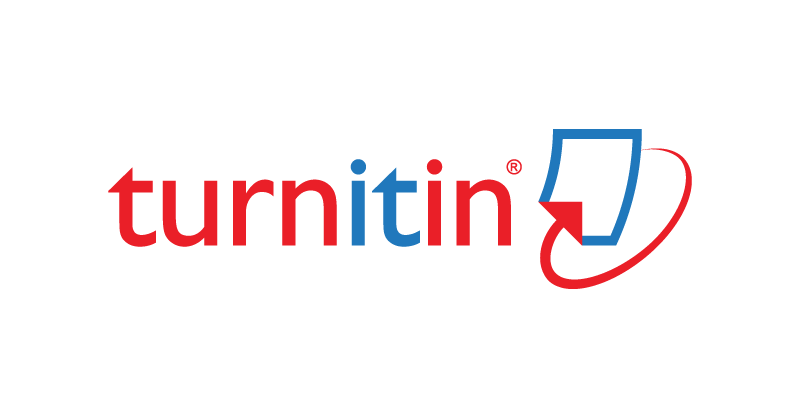The Implementation of Convolutional Neural Network in Recognize Lontara Text
Abstract
The introduction of the Lontara text that is applied is still conventional in that it comes from books or teaching materials and there is no application for a translator of the Lontara text, making it difficult for students, especially those from outside the Bugis tribe. This research aims to measure the ability and apply the CNN method in the context of introducing the Lontara text. The input that use in this research is words taken from the original text or writing manuscripts of the ancient literature of the Bugis tribe "Sureq Maqkelluqna Nabittaq", a book that was used as a tool to spread Islam in 1611. The model used is the VGG-16 architecture. This research uses the R&D (Research and Development) method which is used to create products and test their level of effectiveness. As for the research results obtained, the system accuracy obtained in classifying the Lontara text using the VGG16 architecture was 97,65%. In addition, the system is also able to display the translation of the Lontara text according to the database input.
Keywords
Full Text:
PDFReferences
Alom, M. Z., Sidike, P., Hasan, M., Taha, T. M., & Asari, V. K. (2018). Handwritten Bangla Character Recognition Using the State-of-the-Art Deep Convolutional Neural Networks. Computational Intelligence and Neuroscience, 2018. https://doi.org/10.1155/2018/6747098
Arifin, S., Surahman, & Mursalim. (2018). Analisis Naskah Sureq Makelluqna Nabittaq Di Tinjau dari Aspek Filologi. Jurnal ILmu Budaya, 2(2).
Bora, M. B., Daimary, D., Amitab, K., & Kandar, D. (2020). Handwritten Character Recognition from Images using CNN-ECOC. Procedia Computer Science, 167. https://doi.org/10.1016/j.procs.2020.03.293
Eka Putra, W. S. (2016). Klasifikasi Citra Menggunakan Convolutional Neural Network (CNN) pada Caltech 101. Jurnal Teknik ITS, 5(1). https://doi.org/10.12962/j23373539.v5i1.15696
Indra Wihanry, P. C. (2015). Perancangan Aplikasi Pembelajaran Aksara Lontara Dengan Metode Game Based Learning. Jurnal Tematika, 3(1).
James, A., Manjusha, J., & Saravanan, C. (2018). Malayalam handwritten character recognition using AlexNet based architecture. Indonesian Journal of Electrical Engineering and Informatics, 6(4). https://doi.org/10.11591/ijeei.v6i4.518
Khandokar, I., Hasan, M., Ernawan, F., Islam, S., & Kabir, M. N. (2021). Handwritten character recognition using convolutional neural network. Journal of Physics: Conference Series, 1918(4). https://doi.org/10.1088/1742-6596/1918/4/042152
Nur, R., Andyana, S., & Winarsih. (2018). PENGENALAN AKSARA LONTARA TULIS TANGAN MENGGUNAKAN METODE CONVOLUTIONAL NEURAL NETWORKS BERBASIS ANDROID. In Winarsih Jurnal Informatika (Vol. 18, Issue 1).
Nurfita, R. D., & Ariyanto, G. (2018). Implementasi Deep Learning berbasis Tensorflow untuk Pengenalan Sidik Jari. Emitor: Jurnal Teknik Elektro, 18(1). https://doi.org/10.23917/emitor.v18i01.6236
Riansyah, R. R., Nurhasanah, Y. I., & Dewi, I. A. (2017). Sistem Pengenalan Aksara Sunda Menggunakan Metode Modified Direction Feature dan Learning Vector Quantization. Jurnal Teknik Informatika Dan Sistem Informasi, 3(1). https://doi.org/10.28932/jutisi.v3i1.563
Sabri, M., Nurhayati, & Syahrir. (2020). Aplikasi Pembelajaran Aksara Lontara Bugis Makassar Berbasis Mobile. Prosiding Seminar Nasional Teknik Elektro Dan Informatika (SNTEI) 2020.
Safitri, D. A. (2018). PENGENALAN POLA AKSARA LONTARA DENGAN METODE OPTICAL CHARACTER RECOGNITION. Skripsi.
Shukla, N., & Kenneth, F. (2018). Machine learning with Tensorflow. In Manning.
Wardhani, N. (2018). APLIKASI PEMBELAJARAN AKSARA LONTARA DENGAN ALGORITMA LINEAR CONGRUENT METHOD BERBASIS ANDROID STUDI KASUS: SLTP UNGGULAN 13 MAKASSAR. Instek, 3(3).
Zufar, M., & Setiyono, B. (2016). Convolutional Neural Networks Untuk Pengenalan Wajah Secara Real-Time. Jurnal Sains Dan Seni ITS, 5(2).
DOI: https://doi.org/10.31294/inf.v11i2.20328
Refbacks
- There are currently no refbacks.
Copyright (c) 2024 Wahyu Arthanugraha, Wahyu Arthanugraha, Zahir Zainuddin, Abdul Latief Arda

This work is licensed under a Creative Commons Attribution-ShareAlike 4.0 International License.
Index by:
|
|
|
|
|
|
|
|
|
|
|
|
|
Published LPPM Universitas Bina Sarana Informatika with supported by Relawan Jurnal Indonesia
Jl. Kramat Raya No.98, Kwitang, Kec. Senen, Jakarta Pusat, DKI Jakarta 10450, Indonesia

This work is licensed under a Creative Commons Attribution-ShareAlike 4.0 International License






